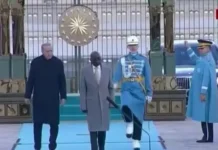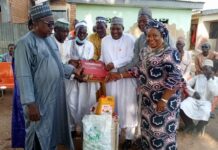Bridging Security and Sustainability: Rethinking the Fulbe settlement model for a resilient Nigeria, by
Engr. Bello Gwarzo Abdullahi, FNSE
Nigeria’s pursuit of national stability and sustainable growth increasingly depends on resolving the complex and often contentious question of pastoral settlement. The Fulbe, one of West Africa’s largest pastoral groups, have historically contributed to regional food security, livestock trade, and cultural exchange. Yet, their mobility—once an adaptive strategy in a benign ecological environment—has become a source of friction amid contemporary pressures of insecurity, land degradation, and demographic expansion. The challenge before Nigeria is not merely about regulating pastoralism but about transforming it into a modern, sustainable livelihood system that aligns with the imperatives of national security, climate resilience, and inclusive development.
At the heart of the current crisis lies the erosion of traditional grazing routes and communal land management systems that previously allowed for peaceful coexistence between herders and farmers. Climate change has further complicated the picture, shrinking available pasturelands through desertification and altering water availability across the Sahel and Sudan savannas. As vegetation belts recede southward, competition for arable land intensifies, resulting in violent clashes, displacement, and a breakdown of social trust. The Fulbe have often found themselves at the center of this struggle—simultaneously victims and perceived aggressors within an environment of mutual suspicion and weak state regulation.
Over the years, successive Nigerian governments have introduced several policy interventions aimed at addressing the pastoral question—ranging from grazing reserves in the 1960s to Ruga settlements and the National Livestock Transformation Plan (NLTP) in more recent times. While these initiatives were conceived with good intentions, their implementation has been inconsistent and politically sensitive. Many were developed without sufficient community consultation, ecological assessment, or integration into broader regional development plans. The result has been limited adoption, widespread mistrust, and continued pastoral mobility that perpetuates insecurity across rural corridors.
READ ALSO: Opinion: On the Breach of Security Architecture of the NDA – Isaac Ochegbudu
A new settlement strategy must therefore move beyond ad hoc interventions to embrace a comprehensive, integrated framework built on three pillars: security stabilization, climate adaptation, and sustainable development. Security remains the foundation. Without addressing the insecurity that affects both pastoral and farming communities, no meaningful settlement strategy can succeed. This requires localized peacebuilding mechanisms, community-based early warning systems, and intelligence collaboration among security agencies. Trust-building between herders, farmers, and host communities is equally essential, as are transparent mechanisms for justice and compensation in cases of conflict.
Equally crucial is the incorporation of climate adaptation and environmental management into pastoral settlement planning. Nigeria must invest in rehabilitating degraded rangelands, restoring water sources, and promoting climate-smart livestock systems. Innovative approaches such as rotational grazing, silvopastoral models, and feedlot development can reduce pressure on natural ecosystems while improving livestock productivity. Partnerships with regional climate institutions and agricultural research centers could help generate data-driven policies tailored to the specific ecological zones where the Fulbe operate.
The third pillar—sustainable development—must focus on transforming pastoral settlements into viable socio-economic clusters. Education, healthcare, and access to infrastructure are indispensable if nomadic communities are to be integrated into the 21st-century development agenda. Literacy and vocational training programs can empower pastoral youth to diversify their livelihoods, while mobile education and digital inclusion initiatives can bridge the gap between traditional mobility and modern governance systems. Development planning should also leverage the economic potential of livestock value chains—meat processing, hides and skins, dairy, and transport—to drive rural industrialization.
READ ALSO: Nigeria at 65: Reflections, realities, and the road ahead, by Engr. Bello Gwarzo Abdullahi, FNSE
Furthermore, effective governance of Fulbe settlement strategies requires institutional coordination among federal, state, and local governments, supported by transparent stakeholder engagement. A national framework—anchored on inclusive policy design, data-driven mapping of pastoral routes, and inter-state collaboration—could guide interventions to avoid duplication and ensure equitable resource distribution. Integrating the voices of Fulbe leaders, women, and youth into decision-making processes would help promote ownership and accountability.
Reconsidering Fulbe settlement strategies is, ultimately, about more than resolving herder-farmer conflicts. It is about redefining rural security, promoting social cohesion, and ensuring environmental stewardship in a rapidly changing climate. Nigeria’s resilience in the coming decades will depend on its ability to balance tradition with transformation—preserving pastoral heritage while advancing a modern development vision rooted in sustainability and peace.
By aligning security imperatives with climate adaptation and sustainable development goals, Nigeria can create a model that not only stabilizes its pastoral economy but also strengthens national unity. The Fulbe settlement question, if approached with foresight and inclusiveness, could thus evolve from a perennial source of tension into a cornerstone of resilience, innovation, and rural prosperity.
bgabdullahi@gmail.com
Follow the Neptune Prime channel on WhatsApp:
Do you have breaking news, interview request, opinion, suggestion, or want your event covered? Email us at neptuneprime2233@gmail.com





